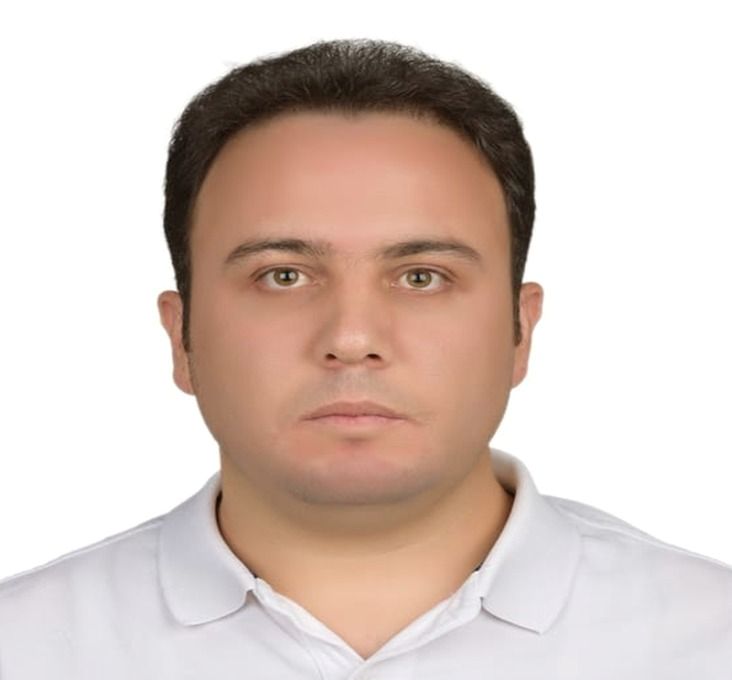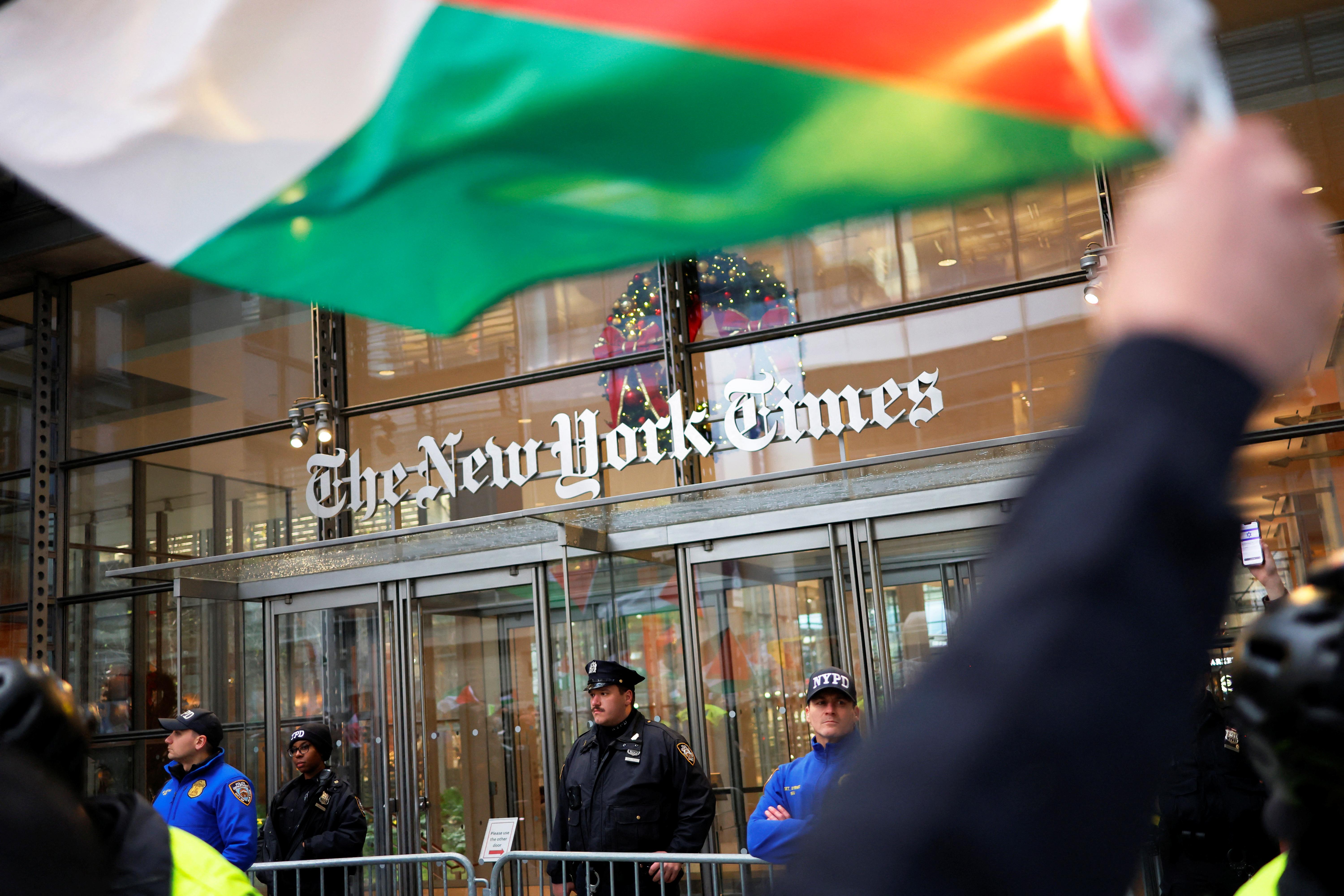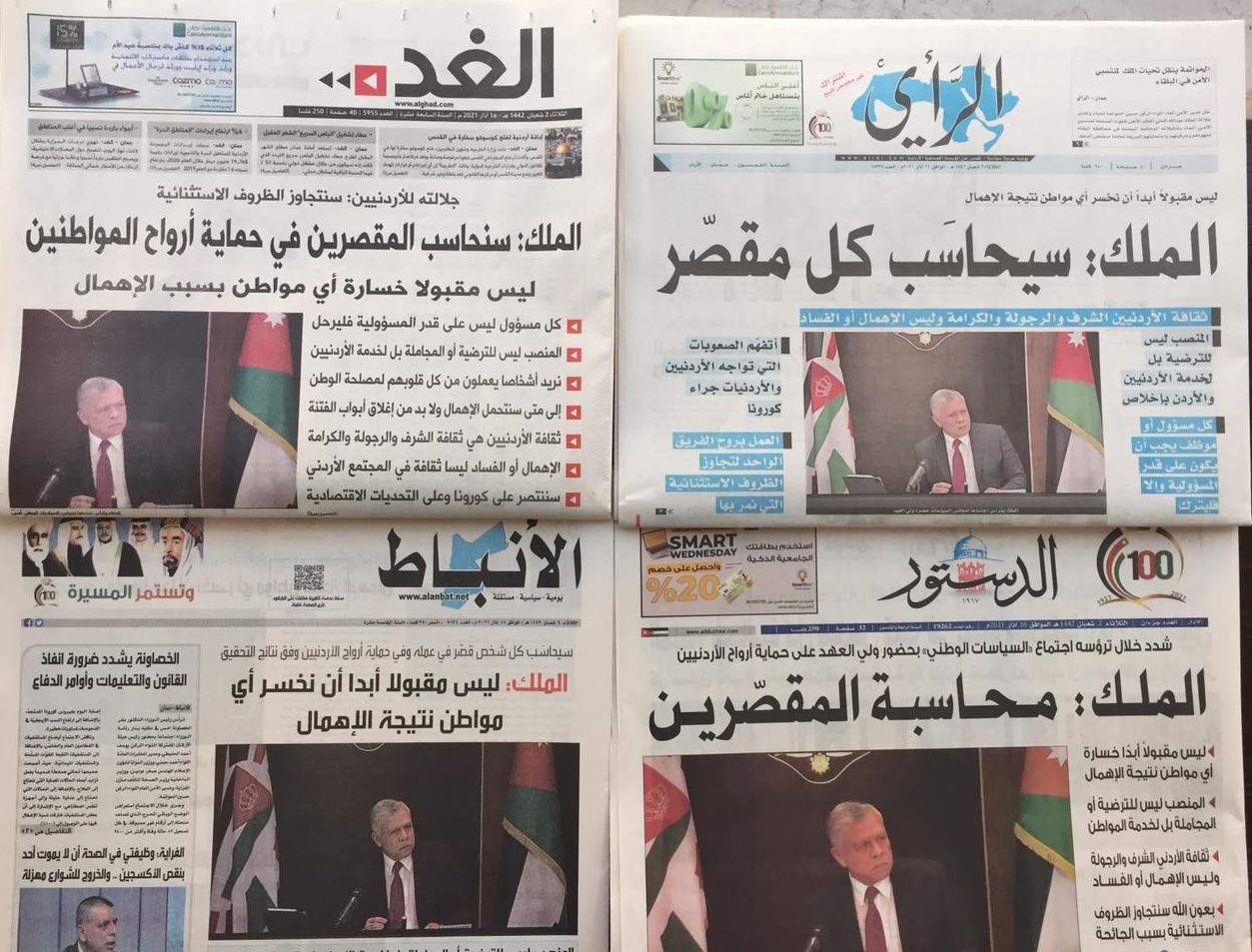This article was originally written in Arabic and translated into English using AI tools, followed by editorial revisions to ensure clarity and accuracy
Old videos inciting “sectarian strife,” statements taken out of context attacking Christians, scenes of heavy weaponry clashes in other countries, fabricated stories of fictitious detainees, and a huge amount of fake news that accompanied the fall of Bashar al-Assad’s regime: Is it the natural chaos of transition or a systematic campaign?
The military operation “Deterrence of Aggression” launched by armed opposition factions, led by Hay’at Tahrir al-Sham, against the regime on November 27, brought the Syrian issue back to the forefront after years of hiding. Allegations related to this event topped Arab and foreign fact-checking platforms due to the false and misleading news leaked about the consequences of the operation, which was addressed by sites and accounts that made it their main concern to refute rumours and dispel false news.
The focus of Arab platforms was on the genocidal war in Palestine and the war in Lebanon. The allegations issued by the media machine loyal to Israel, to the point that Syrian platforms and Syrian activists, discussed the pictures and videos attributed to Palestine and Lebanon that were previously filmed in Syria, but the fall of the Assad regime and the events that followed effectively distanced them from the matter. They made their focus entirely on refuting rumours related to the Syrian issue.
Through follow-up, it is noted that significant media institutions and journalists known for their accuracy in reporting have fallen into circulating false information due to the acceleration and abundance of events. In addition, the electricity and communications networks were not affected by the fighting, and the fear barrier among Syrians was broken due to the rapid advance of the opposition, which resulted in an increase in publishing by a large segment that was not available to them before the fall of the regime.
The Syrian issue has a unique pattern, especially concerning misleading news; publishing any news, picture or video recording in a deceptive manner may cause a lot of bloodshed due to the ethnic and sectarian nature of the country, in addition to the great rift caused by the years of war between these components. These reasons have made fact-checking by journalists a humanitarian act no less important than conveying the suffering and shedding light on the sources of corruption.
The Syrian issue has a unique pattern, especially in relation to misleading news; publishing any news, picture or video recording in a deceptive manner may cause a lot of bloodshed due to the ethnic and sectarian nature of the country, in addition to the great rift caused by the years of war between these components.
The Spread of Rumours
The founders of the ‘Taakad’’ ‘Fareq’’ and ‘True Platforms’ agree that the volume of fake news that followed the fall of Bashar al-Assad's regime was unexpected. The CEO of the Taakad platform, Ahmed Primo, says that "“the platform was founded in 2016, and, it has kept up with many major events on the Syrian, Arab and international levels, but our team has not witnessed a flood of misleading news like the one we are facing now."”
Primo does not rule out that this misleading news is part of a campaign, behind which are entities such as the "Syrian Electronic Army"” which is considered one of the most dangerous bodies loyal to the regime and has had many precedents in launching electronic attacks on the opposition. He also believes that breaking the barrier of fear among Syrians has also contributed to the ease and speed of spreading fake news. Everyone is publishing without censorship, in addition to the vacuum left by the escape of Bashar al-Assad and senior officials and the cessation of publishing by the most essential official sources, especially the SANA agency.
The most dangerous issue the verification team faced was the allegations related to sectarian religious intimidation, such as those talking about the intention to make the veil compulsory and prevent non-veiled women from moving around, in addition to sectarian incitement and promoting revenge.
The journalist holds the new authority responsible for ending these rumours by announcing its official websites and publishing everything official on them. It is believed that the identity and history of the new authority have opened up speculation about it by many social media users and Arab and international media outlets, some of which played a role in spreading the rumours. Primo refers to the investigation that the platform worked on and revealed the identity of an officer in the regime who CNN interviewed as one of the survivors of detention.
Primo talks about a new strategy that Ta’akkadd recently adopted due to the flood of fake news. It resorted to publishing on social media accounts first-hand, without publishing on the website, to save time and limit the spread of rumours among the platform’s followers. Another reason for this decision is that those most affected by rumours live in Syria.
What the CEO of Ta’akkadd fears most is being dragged into rumours that may lead to acts of revenge. He advises social media users and journalists to be sceptical of all the news, recordings, and photos that they see, and not to build on them until they return to official sources and to cross-reference the primary sources with other sources, importantly most notably local sources that are very familiar with the details of the events. At the same time, he warns of some media institutions that have unique agendas, especially those that support dictatorial governments and were against the Arab Spring revolutions. Today, it is waging a war to distort the image of the opposition after the fall of the regime, and its goal is to prove the validity of its point of view, according to his expression.
Social media users and journalists are advised to be sceptical of all the news, recordings and photos that they see and not to build on them until they return to official sources and cross-reference the primary sources with other sources, the most important of which are local sources that are very familiar with the details of the event.
Rumours Have Both Internal and External Sources
Journalist and co-director of the "Fareq” platform, Ghiath Al-Jundi, believes that their team started the battle early;, as it felt the attack before the fall of the regime, when platforms and accounts began promoting Russian Iranian and Iraqi military aid to the regime forces, and at the same time these accounts and sites were denying the opposition's advance in the cities of Hama and Homs, and the countryside of Daraa and Damascus."”
All the rumours are not considered dangerous by Al-Jundi. He points out that the most dangerous thing the team has faced is the allegations related to religious and sectarian intimidation, such as those talking about the intention to impose the veil and prevent women who do not wear the veil from moving around, in addition to sectarian incitement and promoting revenge, stressing that such rumours force many to barricade themselves and launch pre-emptive attacks based on the propaganda of malicious parties, which may be backed by remnants of the former regime, according to him.
The official in the “Fareq" platform believes that there is a campaign by external and internal parties benefiting from creating chaos, especially when spreading rumours about the assassination of scientists in chemistry, religion and medicine, noting that such news had a significant impact on the street, but it seems that it was hastily formulated by the party making a claim, which facilitated the process of denying and refuting it. In addition, there is the news related to Israel’s support for the fighters of "Hay’at Tahrir al-Sham" and this aspect was directed at the Arabs in particular, to incite the Arab street against the Syrian opposition."”
Hamza Hamki, CEO of True Platform, says, the number of misleading claims that followed the fall of Bashar al-Assad's regime shocked fact-checkers, and even non-fact-checkers at times, and there were calls for caution because the moment was about the fate of the country above all else.””Hamki believes that the areas of northeastern Syria controlled by the Syrian Democratic Forces (SDF) were not exempt from what happened in the rest of Syria. He added, ". “During our coverage, the team noticed that most of the misleading news was published by pages and accounts affiliated with the parties involved in the conflict in various regions. It was also noteworthy that Syrian and Arab journalists and media outlets fell victim to misinformation and the publication of information without verifying it, especially about the conflict between the “SDF" and the opposition forces.
The Executive Director of "True Platform" believes that there is another reason that contributed significantly to the spread of misleading news, which is the frantic pursuit by social media users and some institutions to gain interaction; any Syrian news has become the subject of research and follow-up by all those interested in the conflict in the region.
It does not seem that the spread of rumours related to the Syrian issue will decrease soon, making it necessary to deal with them with caution and adopt scepticism and a critical sense in everything published. Awareness and responsibility, whether on the individual or collective level, remain the fundamental pillars for confronting this phenomenon.











































